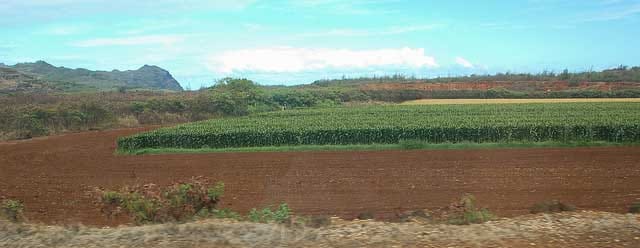ABC News (AP)
by Audrey McAvoy
 |
Monsanto Co. and a Dow Chemical Co. unit filed the lawsuit in federal court in Honolulu, asking a judge to immediately prevent the law from taking effect and to invalidate the measure.
“This local referendum interferes with and conflicts with long-established state and federal laws that support both the safety and lawful cultivation of GMO plants,” John Purcell, Monsanto Hawaii’s business and technology lead, said in a statement.
The case has been assigned to Magistrate Judge Barry Kurren, who earlier this year declared a Kauai County law regulating genetically modified crops was invalid because it was superseded by state law.
The Maui law imposes a moratorium on the growing of genetically engineered crops until scientific studies are conducted on their safety and benefits. The moratorium would be lifted only after a vote by the Maui County Council.
County voters narrowly passed a ballot initiative last week that imposes the ban after an intense campaign. The seed companies poured $8 million into advertising opposing the measure, vastly outspending the initiative’s supporters.
The law, which doesn’t apply to crops in mid-growth cycle, goes into effect when officials certify the election results. That’s expected to happen late this month.
The initiative’s authors sued the county in state court Wednesday to ensure the county implements the law.
Michael Carroll, their attorney, said they would request the federal court to hold off from deciding this case until the state court on Maui has ruled.
“A Maui Court is best equipped to decide any issues associated with the enforceability of the new GMO law,” Carroll said in a statement.
Maui County spokesman Rod Antone said the county was unable to comment because of pending litigation.
Monsanto and Mycogen Seeds, which is part of Dow Chemical unit Dow AgroSciences, both conduct research on new varieties of genetically engineered seeds in Maui County.
Hawaii’s warm weather allows them to plant multiple crop cycles each year, speeding up their seed research and development process. The world’s biggest corn seed developers all have operations in the islands to take advantage of the climate. Other research is done at farms in Honolulu and Kauai counties.
About 90 percent of all corn grown in the U.S. is genetically engineered and has been developed partially at Hawaii farms.
The lawsuit notes “a significant percentage of the corn seed planted in the U.S. have originated from Monsanto’s facilities in the county.”

